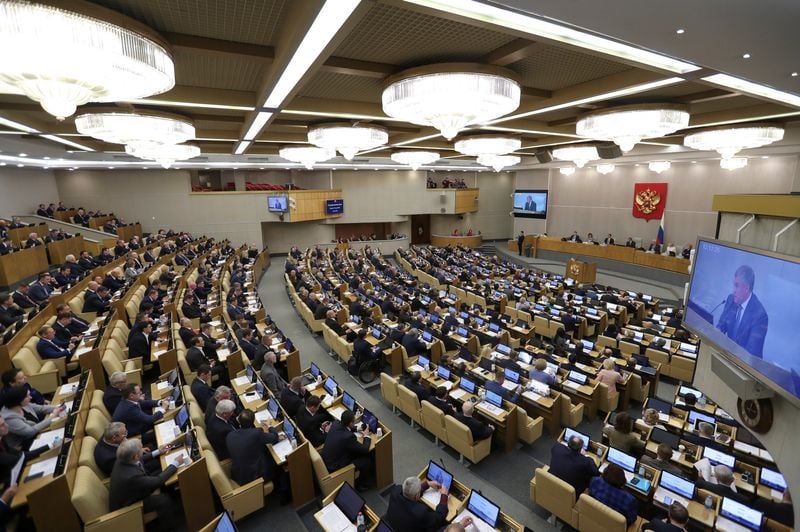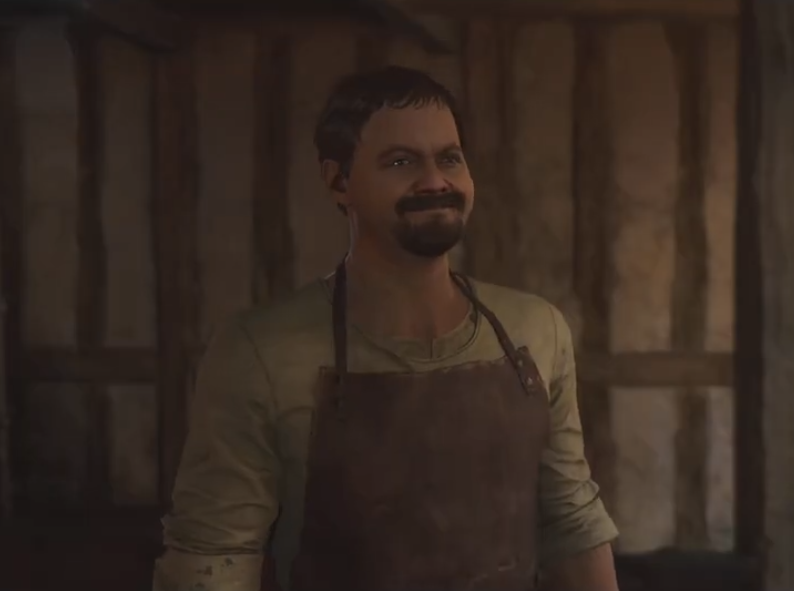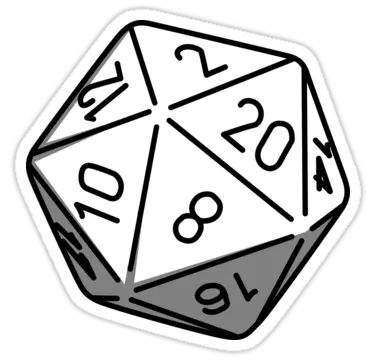MOSCOW (Reuters) - Russian lawmakers have submitted a draft bill to the State Duma that would rewrite a chapter of history by nullifying the Soviet decision in 1954 to transfer Crimea from Russia to Ukraine.
The move appears aimed at establishing a legal basis for Russia to argue that Crimea, the Black Sea peninsula which it claims to have annexed from Ukraine in 2014, was never really part of Ukraine to begin with.
The draft, submitted by a lawmaker from each of Russia’s two houses of parliament, describes the 1954 handover as arbitrary and illegal because no referendum was held and Soviet authorities had no right to transfer territory from one constituent republic to another without consent.
Does this mean Russia should lose the USSR’s permanent seat on the UN security council?
Yep. And it should go to Ukraine.
Lmao. As a firm supporter of Ukraine in this conflict, the sentiment is nice but giving them a permanent seat on the world security council is ridiculous. Neither their economic nor military power warrants that, many much more powerful and influential countries don’t get a permanent seat.
Could be wrong, but I assumed it was a joke
I’m german, we don’t do so well with humor.
To be fair, it’s easy to miss sarcasm and dry humour in text. I do it all the time =)
German humour is no laughing matter.
Nice sentiment, but that would be a pretty absurd choice. It would be nice to have a South American or African permanent member, or perhaps India.
Id say give India a few years before deciding. Modi isn’t steering them in the best direction as of late.
I suggested them not because I’m a Modi stan but because there’s a much stronger case for their geopolitical importance.
The AU just got a seat on the G20, just sayin
Pfft lol
It would be more absurd not to give it to Ukraine
Believe it or not, they still use the .SU top Domain Name. Which they got just before shit inploded in 1991. So just based on that fact they will say “,нет товарищ or no comrade”
On what ground? is there any UN article that will legitimate it?
The USSR’s seat was never officially given to Russia - they sort of just kept occupying it and no one told them to stop.
At last somebody who engages intellectually with an answer, although I don’t see the truth of it. Do you have any any resources supporting your statement? At least according Article 23 of UN charter, it’s stated clearly of the five permanent members.
The Security Council shall consist of eleven Members of the United Nations. The Republic of China, France, the Union of Soviet Socialist Republics, the United Kingdom of Great Britain and Northern Ireland, and the United States of America shall be permanent members of the Security Council. The General Assembly shall elect six other Members of the United Nations to be non-permanent members of the Security Council, due regard being specially paid, in the first instance to the contribution of Members of the United Nations to the maintenance of international peace and security and to the other purposes of the Organization, and also to equitable geographical distribution.
It’s official for the five countries, not given but acquired.
EDIT: I am interested in the real knowledge and fact, and I am never interested in bias and one-sided answer just to support one’s view. That not healthy academically.
Sorry, I’m not sure what you’re saying or asking here. Is this a question?
please provide references for your earlier statement. I think it is blatantly wrong. Please prove to me otherwise.
The passage you cited is a good start, as it still to this day states that the USSR is a member, and the USSR of course no longer exists. It seems quite unambiguous to me, to the extent that I’m not sure why you believe it supports your argument.
You can read this for more background if you like: https://www.chicagotribune.com/2022/02/28/ian-hurd-read-the-words-as-they-appear-russia-is-not-a-member-of-the-united-nations-security-council/
Because Russia is the sole continuation to USSR according to Alma-Ata Protocol in 1991?
From Just Security and for the subsequent quotes.
“The States of the Commonwealth support Russia’s continuance of the membership of the Union of Soviet Socialist Republics in the United Nations, including permanent membership of the Security Council, and other international organizations.”
And during those days the members didn’t want to bring it up because that was the way they wanted it to happened and now suddenly we question their legitimacy because they have turned to be direct threats to us?
The main factor that influenced how the issue was handled in the UN was the basic policy decision of the other P4 (China, France, the United Kingdom and the United States), including first and foremost the US government, which was that it was in everyone’s interest that the USSR be dissolved peacefully and orderly, which could be accomplished if the other republics agreed among themselves on various matters including the former USSR seat and the veto. The republics of the former USSR, including Ukraine, agreed to Russia maintaining the seat of the USSR including in the Security Council. If they agreed, who would object? On what grounds would anyone have objected to Russia continuing the seat of the USSR in 1991? Maybe to get rid of a veto? If so, it was up to a Member to speak up and make the case.
Members were notified that Russia claimed it was not a “successor State” but a “continuing State” with the support of the former republics of the USSR, and there was no opposition
On Christmas Eve 1991 the Soviet Permanent Representative Yuli Vorontsov came to the UN Secretariat with a box in his hand with a new flag of something called the “Russian Federation” and a letter to the Secretary-General signed by Boris Yeltsin, “President Russian Soviet Federative Socialist Republic” (RSFSR). It said “ the membership of the Union of Soviet Socialist Republics in the United Nations, including the Security Council and all other organs and organizations of the United Nations system, is being continued by the Russian Federation (RSFSR), with the support of the countries of the Commonwealth of Independent States, by the Russian Federation.” Note it says “continued” not succession. In the law of succession, he was claiming that parts of the territory of his country had separated, leaving behind the rump which continued the international legal personality of the former larger State, whose name happened to change as well. Same country, just smaller, different borders and a new name and flag. The Russian Federation was the “continuing State” whereas all the bits that spun off were “successor States”—except for, ironically, Ukraine and Belarus which had been deemed as founding members of the Organization in 1945 for reasons not dealt with here. The letter also asked the Secretariat to change the name of the country from “the Union of Soviet Socialist Republics” to “Russian Federation” wherever it appeared.
and…
Members said nothing at the first meetings at which “the change” was reflected.
Although no objections or questions about the claim came in writing, the first time UN bodies met after “the name change” would offer an opportunity to raise the matter in a meeting. Any delegate could raise a point of order from the floor asking “What is that sign ‘Russian Federation’ and who is sitting behind it?” — and thus open up the issue for debate and discussion. The first meetings scheduled after the “change” were not in the General Assembly but rather in the Council. On Dec. 31, the Security Council met for the first time after the “change.” But it was the last day of the month which had heretofore been presided over that month by Ambassador Vorontsov as the USSR representative. On the 31st, however, he presided behind the “Russian Federation” nameplate. The meeting lasted 5 minutes at which a resolution on Western Sahara was adopted unanimously. The President gave a statement at the end thanking the retiring members of the Council. Not one word came from him or any member of the Council about “the change.” The members of the Council who could have mentioned it were Austria, Belgium, China, Cote d’Ivoire, Cuba, Ecuador, France, India, Romania, the United Kingdom, the United States, Yemen, Zaire and Zimbabwe. They all knew and could see there was a change but no words were spoken on the matter. There must have been a clear understanding among members behind the scenes that the Soviet representative would “see out” his presidency for the month as the Russian representative, regardless of “skipping” the alphabetical rotation rule for that one day (S/PV.3025).
Anyway, you can read the whole linked article. It is a good read for those who are interested in geopolitics and the non-bias.
So they’re admitting that without this nullification, Chrimea is part of Ukraine and Russia has no claim to it?
100% correct. This is the shoot first ask questions later variant of stealing land.
Shoot first, make a law retroactively making shooting legal later.
Drop dissenter from a window
So they’re admitting that without this nullification, Chrimea is part of Ukraine and Russia has no claim to it?
Its a bunch of formalizing of what has already been achieved militarily. Hardly the first time a military occupation has shifted a national border. That’s the story of 90% of the United States and 70% of the UK.
Soviet borders are arbitrary. Nobody cared as long as they were all part of the union.
No, no, no, no, no.
Not no claim. Just… No legal claim.
They’ve also made noises about the sale of Alaska to the United States by imperial Russia being illegal. Good luck with that, shitheads.
Trump would give them Alaska if Putin asked…
They can have the Palin family
Idk he might have enough sense to get something out of it. Likely personally, but I don’t think even that guy could give it away
Of course, Trump’s companies would benefit, same as when they were paid off by the Saudis, but the US wouldn’t get anything.
They are really trying to justify stealing that territory from Ukraine
My favorite part is Russia is trying to change legislation that a different country (the USSR) made, which affects a third country (Ukraine). This is some hardcore ‘throwing shit at the wall and seeing what sticks’ level of imperialism.
Edit: Fixed some wording.
Yup. It’s mental gymnastics at its finest.
Ans the cool part is, none of it matters because they are a one-party dictatorship and what the government/Putin says, goes. Nothing they say inside their own legal system has an iota of weight more than a micrometer past their borders- it exists purely for propaganda and to make it easier to legally disappear any dissenters.
Historically, Russia has never cared much for the written law. They’ll just throw shit at the Western wall until something sticks or until they get what they want by violence and intimidation. Same as they always have.
Any Lords of Sealand want to convince your peers to issue a law that what the USSR did was legal and that, in fact, Crimea was supposed to be interpreted as “everything west of the Urals”? Seems like it would hold about the same amount of water
The draft, submitted by a lawmaker from each of Russia’s two houses of parliament, describes the 1954 handover as arbitrary and illegal because no referendum was held and Soviet authorities had no right to transfer territory from one constituent republic to another without consent.
I’m pretty sure that there was no consent when Russia attacked Ukraine in 2022.
So how’s it going to be? Is consent necessary or not when determining if land belongs to Russia id or not?
Obviously consent as a concept is a Soviet beta male idea which was eliminated when Russia levelled up to sigma
Even if it was illegal and without consent, any reasonable government would put it to a vote.
They are just straight up fucking idiots.
This is explicitly banned under the No Backsies rule.
So Ukraine should get the Soviet nukes back that they have up, right? Right?
Is this because Ukraine forgot to say “no taksie backsies” when this was originally passed?
It’s because Russia had crossed their fingers behind their back while agreeing.
Both of these things are about as strong as some kind of “lawful résolution” during a time if war.
“Oh, we’re going to punch you in the face and that lunch money we stole earlier? Billy said you gave it to me.”
Are there any other Soviet-era territorial changes that took place under similar conditions, that might threaten the integrity of other former Soviet republics based on this precedent?
The entire countries of Kazakhstan and Kyrgyzstan were autonomous republics within the Russian SFSR for the first ~16 years
This whole things seems fascinating
If you don’t mind, could someone take only thirty seconds, or one minute, to give me a little historical background?
I don’t know enough about this specific topic to give you more info than Wikipedia could, but:
- The Russian empire goes into WW1 controlling more or less the post-WW2 borders of the Soviet Union. It has Finland and eastern Poland as well, plus a few other diffferences, but you get the idea.
- Russia collapses in the war, several years of civil war ensue, the Bolsheviks win and name the new version of Russia “the Russian Soviet Federative Socialist Republic”. It should be noted that the civil war was not at all just a “rebels vs government” deal, the list of different factions is utterly ludicrous. There was an enormous heap of different groups in the former empire and basically every European country was backing at least one of them.
- The RSFSR does not control all of the former Russian empire, only most of it. Several parts did their own thing during the civil war and are currently independent, often fighting their own ongoing civil wars. The RSFSR begins a bunch of wars to try to regain all of the former territory, losing some and winning others.
- The RSFSR regularly backs allied factions in the various national struggles, such as backing the Bolshevik-aligned Ukrainian Socialist Republic against the also-socialist but German-backed Ukrainian People’s Republic, the anarchist Makhnovshchina movement, and the also-German-backed but not-socialist Ukrainian State.
- In the cases that the Bolshevik-allied factions won, you now have a bunch of Bolshevik-aligned states outside of the RSFSR.
- Delegates from the Russian, Ukrainian, Belarusian, and Transcaucasian soviet republics (Transcaucasia is today Armenia, Azerbaijan, and Georgia) get together at the end of 1922 for the First All-Union Congress of Soviets and agree to make a sort of country-of-countries. Something a bit like the EU, but communist and with more power centralised in the new government. This new thing is the Union of Soviet Socialist Republics. Nominally all four “union republics” are equal, although Russia remains enormously more powerful in practice than the others.
- One of the early principles of the Bolsheviks was equal rights for the various nationalities in the new state that they envisioned. To this end, they had a Commissar for Nationalities even before the revolution, a position whose job it was to make sure the nationalities got represented. This position was held by none other than Joseph Stalin.
- Over the next twentyish years, a number of regions in the four SSRs are broken off into new SSRs for different nationalities - Turkmen, Tajik, Uzbek, Kyrgyz, Kazakhs, and more out of Russia, Trancaucasia gets split into Armenia, Azerbaijan, and Georgia etc. Several conquered countries like the Baltic states also become union republics. I have no idea what logic was used when deciding which ones got to be their own republics and which just got to be autonomous parts of the RSFSR. A policy called korenizatsiya is implemented, under which people are meant to be able to run their lives in their own languages.
- The Kazakh and Kyrgyz SSRs stand out because they were autonomous regions of the RSFSR for quite a while before becoming their own SSRs. Their Central Asian neighbours in the Tajik, Turkmen, and Uzbek SSRs became union republics pretty quick, and others like the Bashkirs and Tatars stayed part of the RSFSR until the Soviet Union collapsed. It was only really those two that were somewhere in the middle.
Thank you.
I’m sure they will also considered illegal taking teritory from China and Japan as there was no referrendum in those places. Right ? I bet they will also compensate whole east block for occupation that took about 4 decates. Right ? I’m sure we can go on.
Pick the one that is economically necessary, Stalingrad.



















